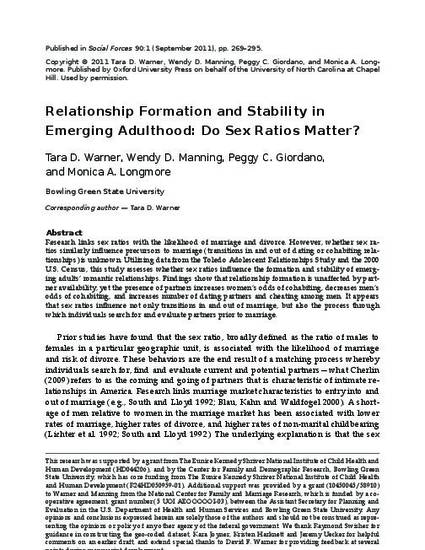
Social Forces 90:1 (September 2011), pp. 269–295.
Research links sex ratios with the likelihood of marriage and divorce. However, whether sex ratios similarly influence precursors to marriage (transitions in and out of dating or cohabiting relationships) is unknown. Utilizing data from the Toledo Adolescent Relationships Study and the 2000 U.S. Census, this study assesses whether sex ratios influence the formation and stability of emerging adults’ romantic relationships. Findings show that relationship formation is unaffected by partner availability, yet the presence of partners increases women’s odds of cohabiting, decreases men’s odds of cohabiting, and increases number of dating partners and cheating among men. It appears that sex ratios influence not only transitions in and out of marriage, but also the process through which individuals search for and evaluate partners prior to marriage.
Available at: http://works.bepress.com/wendy_manning/11/
Copyright © 2011 Tara D. Warner, Wendy D. Manning, Peggy C. Giordano, and Monica A. Longmore. Published by Oxford University Press on behalf of the University of North Carolina at Chapel Hill. Used by permission.